Does a cold and fever have an effect on blood sugar?
This is Dr. Sun, we continue to provide you with quality health knowledge, please leave a message if you have any questions, and welcome sugar friends to communicate with us!
Outpatient clinics can often see many patients who usually have very stable blood glucose, suddenly appear to have a large change in blood glucose, many people's blood glucose is elevated, and some people's blood glucose dropped significantly. When asked about the recent situation, they would say that
Had a cold the other day yet, fever! Had a couple days of shots at a small clinic nearby!
I've had a cold for a few days and don't want to eat!
Colds, fevers, and other discomforts are supposed to be the cause of blood sugar changes.
What's a cold?
Cold is a common respiratory disease in life, also known as upper respiratory tract infection, is a general term for acute inflammation of the nasal cavity, pharynx and larynx, which manifests itself as nasal congestion, runny nose, sneezing, sore throat, cough, fever and many other symptoms due to viral infections such as adenoviruses, coronaviruses, rhinoviruses and other infections. It is contagious, mostly attacked in spring and usually disseminated. It is more likely to occur in people with low body resistance. Diabetic people are the susceptible people to colds.
Colds and fevers have less of an effect on blood sugar in people without diabetes.
Common cold and flu medicines usually contain ingredients such as pseudoephedrine hydrochloride, paracetamol, acetaminophen, phenylephrine, artificial oxalic acid and other ingredients, which usually do not cause high blood sugar. Proprietary Chinese medicinal preparations containing ephedra, cinnamon sticks, thorns, fengfeng, mint, dandelion, dicotyledonin, and panax quinquefolium also do not contain ingredients that cause elevated blood glucose. Intravenous infusion of glucose solution will cause an increase in blood sugar, this high blood sugar symptoms are only temporary, and will soon return to normal.

A cold in a diabetic patient can easily lead to a disturbance in the patient's blood sugar. This is because:
Disease Characteristics
Cold and fever is a stressful condition for diabetic patients, which can cause changes in the body's hormones such as adrenocorticotropic hormone levels, etc. These hormones antagonize the action of insulin, which is the only glucose-lowering hormone in the body, and when insulin's action is inhibited, it causes an increase in blood glucose.
The immunity of diabetic patients is lower than that of normal people, the chemotaxis ability of leukocytes is obviously reduced, and the activity of macrophages is reduced, so the resistance to viruses is poorer; the secretions are more sugary and nutrient-rich, which can easily become a breeding ground for bacteria and viruses. Some viral infections, which cause immune reactions in the organs, will directly destroy pancreatic islet B cells and reduce insulin secretion, which will cause obstacles to the utilization and transformation of sugar and lead to elevated blood glucose.
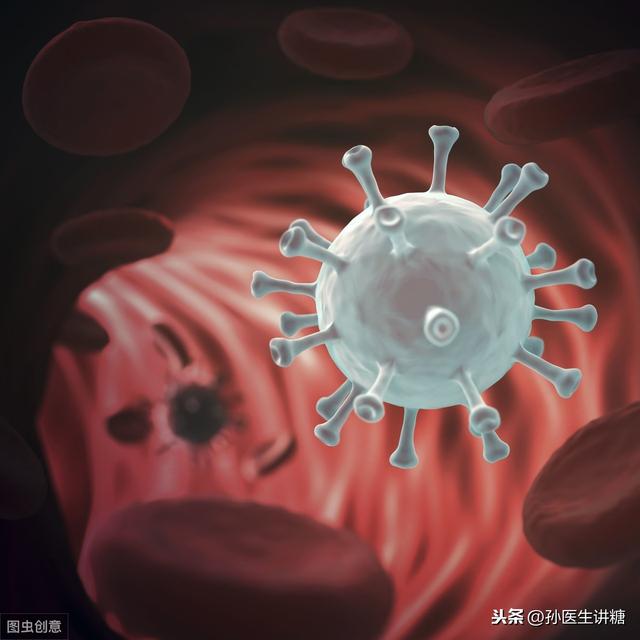
Increased sugar in the mucosa of the respiratory tract, the mobility of the cilia deteriorates, the ability to clear sputum is weakened, and lung infections are easily induced. The infection will aggravate the existing condition, and in severe cases, cause diabetic ketosis and ketoacidosis.
Drug effects
Some cold medicines contain acetaminophen components, this drug has antipyretic and analgesic components, after serving a lot of sweating, if there is no timely replenishment of water, the human body is dehydrated, which will lead to elevated blood sugar.
Antipyretic syrup type in order to improve the taste, usually add sweeteners, most of the sweeteners for sucrose, which is a kind of polysaccharides, taking it will make the blood sugar sugar, affecting the blood sugar level. Many people like to choose Chinese medicine punch, because of the unique effect of Chinese medicine on the virus, the effect is also better, it is recommended that diabetic friends can choose those sugar-free type of punch. However, a better option is to opt for capsules for treatment. This will reduce the effect of sugary substances in the punch or syrup.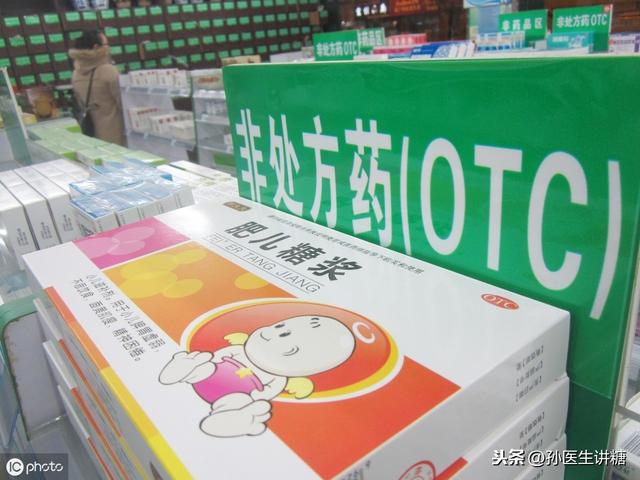
Because medicines used to treat colds and fevers are over-the-counter (OTC) medicines, that is, medicines that can be purchased over the counter without a doctor's prescription, they are basically used by reading the instructions. Therefore, diabetic friends should read the instructions carefully when using such drugs. See if there is sucrose, look at the symptoms diagnosed by the drugs contained in the cold medicine to choose the right medicine.
Some of our diabetic friends may opt for infusion therapy because of the more obvious symptoms. For the sake of convenience, they may start the infusion treatment in community clinics or small clinics. However, some clinic doctors may add drugs such as dexamethasone in order to improve the patient's symptoms in a hurry. Dexamethasone is a more commonly used drug in the clinic, but it belongs to the adrenal glucocorticoid class of drugs, with anti-inflammatory and anti-allergic effects, and can fight against fever and sneezing of colds and flu, which will improve the symptoms and reduce the body temperature very quickly, but it will obviously raise the blood glucose.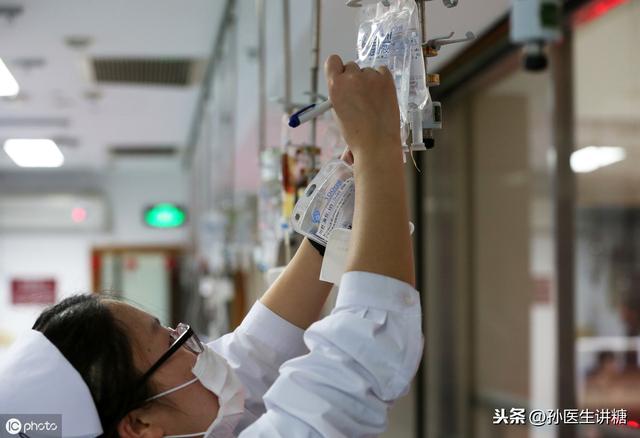
If you don't tell your doctor about your medical history when you get an infusion, of course, your doctor will usually ask if you have diabetes, so that he can choose the type of fluid to be infused. But we can't rule out the case that the doctor doesn't ask or forgets to ask. Glucose is the more commonly used drug solvent in the infusion process, the application of glucose injection during the infusion if the application of insulin and other drugs to counteract, then certainly will also have an impact on blood sugar.
Lifestyle changes
After a cold and fever, the patient is lazy and weak, activity is reduced, the consumption of calories is reduced, and after the disease if the appetite is not affected, may eat as usual similar, or because of the disease to increase the nutrition, it will cause the blood glucose to rise.
Patients with colds who have a decreased appetite and eat less are highly susceptible to hypoglycemia if they continue to use the original dosage of medication. This situation is also relatively common in clinical practice.
Response
Sugar lovers once the cold, must be timely and effective treatment, drink more warm water, application of heat-clearing and detoxification, anti-swelling and anti-inflammatory Chinese medicines treatment, you can also choose Western medicine, try to choose the symptomatic treatment of the drug. Pay attention to increase the frequency of blood glucose monitoring, taking into account fasting, pre-meal, post-meal, night and other time points. Ensure that blood glucose is stable, and adjust the dosage of hypoglycemic drugs if blood glucose changes significantly.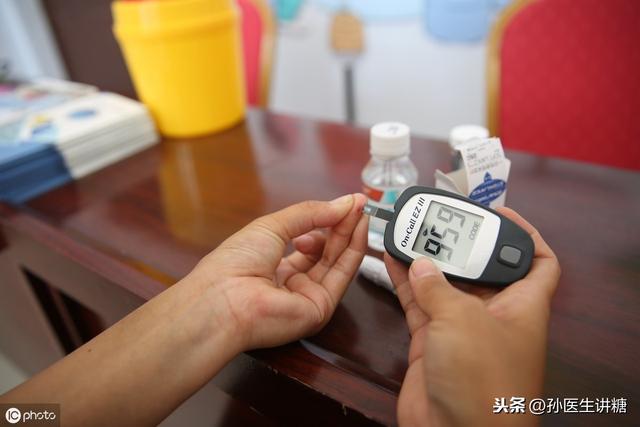
Colds are viral infections. If the patient develops symptoms such as coughing up yellow sputum, high fever, and chest pain, he should go to the hospital for chest imaging in time to rule out bronchitis, pneumonia, and other disorders, and apply antibiotic treatment if necessary.
If you are suffering from diabetes, you should drink plenty of water, pay attention to warmth, and exercise more to strengthen your body. Do prevention-oriented, and strive not to have infectious diseases, such as viral, bacterial and other infections.
For patients who are less fit, flu vaccinations can be given in the spring and fall of each year, which can also be effective in preventing the onset of colds.
In summary: Cold and fever can have an effect on blood sugar in diabetes, which may cause an increase in blood sugar or hypoglycemia, so it is very important to test your blood sugar to adjust your medication. It is important to treat it in a timely manner to prevent the emergence of co-infections. It is important to strengthen your body and get a flu shot if necessary.
It affects blood sugar. The first raises blood sugar and the second lowers it.
In most cases, it is the first type of symptoms, elevated blood sugar. The reason is that cold and fever is a kind of blow to the body, facing the blow the human body will enter a "state of stress", in fact, this is also a natural protection mechanism of the human body, so that the body can fight against foreign "aggression". When the state of stress, some of the hormone secretion of blood glucose increase, such as adrenaline. Diabetic patients because of pancreatic islet cell dysfunction, can not secrete more insulin to combat this state, so the blood glucose rises. In addition, some people go to the hospital for fluids when they have a fever, ignoring diabetes and giving more glucose, which can also raise blood sugar. Also, when you have a cold and fever you need to drink more water, some people take drinks instead of plain water, which also causes blood sugar to rise. In addition, some people think that their bodies are "too weak" after catching a cold, so they need to "make up" and eat a lot of fruits, meat soup and other high-calorie things, which will also increase blood sugar. There are also some people who have to take medicine for colds and flu, worrying about too much medicine, they do not eat the usual hypoglycemic drugs, and their blood sugar will rise.
A small number of people suffer from another condition: lowered blood sugar. Some people catch a cold with diarrhea, vomiting and loss of appetite as the main manifestation of the so-called "abdominal cold", when the body's loss of calories can not be supplemented, there will be more loss, it will be hypoglycemia. Or cold and fever, delayed, a longer period of poor appetite to eat less, blood sugar will also be reduced.
So diabetics who suffer from colds should pay attention to: first, drink more water and rest, eat a light diet, regular and quantitative. But be careful not to take drinks and fruits instead of water. Secondly, when you go to the hospital, you should communicate with the doctor about diabetes and avoid the use of drugs and liquids that have a big impact on blood sugar. Third, strengthen blood glucose monitoring to guide the use of medication. Fourth, the original hypoglycemic drugs should still eat, only the dose may need to be adjusted according to the amount of food, whether there is diarrhea and vomiting and other circumstances. Therefore, we should first implement the third "more frequent blood glucose testing". Fifth, if necessary, contact the endocrinologist.
Colds affect blood sugar for sure. Generally, a cold will cause the patient's blood sugar to rise at the beginning. At the same time, colds can affect the appetite, patients often have a loss of appetite, the patient's appetite, eat less, blood sugar will also become low.
In stages, when the cold just starts or is mild, it is likely to cause the diabetic patient's blood sugar to rise. When the cold reaches a severe level, the patient will not eat enough for a long time because of the loss of appetite, at this time, the patient's body does not get enough energy to replenish, and hypoglycemic conditions will follow.
Of particular concern is the appearance of gastrointestinal flu. With gastrointestinal flu, patients not only eat less, but also have diarrhea. If the patient does not pay attention or go to the hospital for treatment in time, severe hypoglycemia is likely to occur. Worse, threaten the patient's life and health.
So, when a diabetic develops a gastrointestinal cold it is important to pay increased attention. Do not wait until you are breathless, have a fast heartbeat, low blood pressure and complete malnutrition to seek medical attention.
To do at any time to monitor blood glucose, and according to the changes in blood glucose high and low adjust the amount of hypoglycemic drugs. In addition, dietary control should be strengthened, do not refuse to eat because of poor appetite, and do not eat indiscriminately because of hunger pangs.
As for colds, although it is a minor disease, the medical profession has not yet found a way to attack it. There is no particularly good way to deal with a cold, especially a viral cold, and in the case of drinking plenty of boiled water, only some antidote and symptomatic treatment can be carried out to alleviate or alleviate the symptoms of the cold.
[Professional doctor for your answer, welcome to pay attention] Cold and fever is a stressful event for the body, in most cases the blood sugar will rise, more difficult to control than usual. In some cases, such as diarrhea, poor appetite and inability to eat, blood sugar will decrease. In short, blood sugar fluctuates more during a stressful event, and it does have an effect.
Hello: Colds have a certain impact on blood glucose. A common or mild cold has little impact on blood glucose results. If a severe cold is accompanied by fever, sore throat, cough, nasal congestion and other symptoms, resulting in endocrine imbalance, it may lead to a transient increase in blood glucose results. However, this elevation of blood glucose is not persistent, and when the above symptoms are relieved, the blood glucose will slowly return to normal. Normally, if your blood glucose is high, you must pay attention to monitoring your blood glucose during the cold. Normally, you should pay attention to regular life, regular quantitative, not overeating, low-salt and low-fat diet, dietary diversity, maintain balanced nutrition, more exercise, maintain a normal body weight, and work and rest on time, which is conducive to blood glucose control.
Hi, Sanno Speak Sugar is happy to answer your questions!
Does a cold and fever have an effect on blood sugar?
Any stressful situation can affect his blood sugar, so a cold and fever can affect blood sugar and raise it.
Normal people will secrete insulin according to the change of blood glucose to keep the blood glucose within the normal range due to the normal function of pancreas. However, if there are symptoms such as cold and fever, sore throat, cough, nasal congestion, etc., leading to endocrine imbalance in the body, in an unstable state, blood sugar is higher than usual.
As for how much a cold and fever will affect your blood sugar, it depends on the severity of the cold. If you have a common or mild cold, it will have little effect on your blood sugar results.
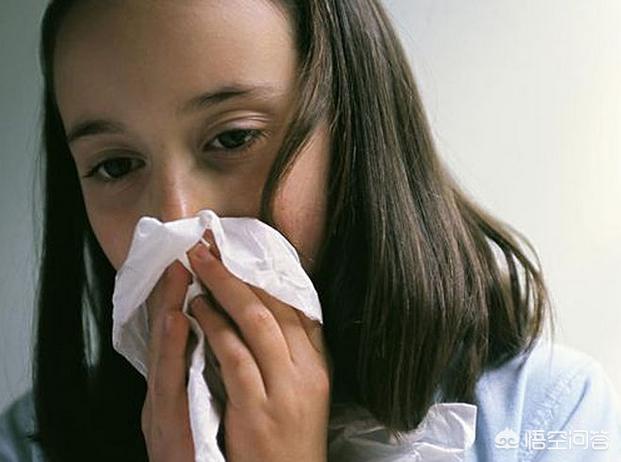
If a severe cold is accompanied by fever, it will affect the blood glucose measurement. This is because when a person has a fever, nausea, vomiting, diarrhea, emotional stress, shock, etc., there will be a significant increase in the secretion of cortisol hormones and adrenal hormones in the body, and these hormones have an antagonistic effect on insulin, which can lead to a transient increase in blood glucose results in this case.
Therefore, diabetics need to monitor their blood glucose and adjust their hypoglycemic medication according to their blood glucose level, as their blood glucose rises during a cold or flu due to the stressful situation. Adjust the dosage of medication according to the blood glucose level after recovery. If you are having a checkup, it is recommended to do so after the cold has healed so as not to affect the results. During the period of cold and flu, active treatment, drink more water, to avoid complications of other diseases.
Overall, a cold and fever may cause an increase in blood glucose, but when the stressful situation is lifted, the high blood glucose will slowly drop to normal, so diabetics with a cold must be treated aggressively.
It's not easy to write by hand. If you agree with the views in the article, appreciate a like, click a concern, if you have any questions, you can leave a message or invite "Sanno talk about sugar" to answer!
Life Road Public Health believes that the cold and fever, may have some impact on blood sugar, from the Chinese medicine point of view, blood sugar may be somewhat higher or lower. Because diabetes Chinese medicine mechanism for, Yin deficiency for this, dry heat for the standard, blood stasis throughout the disease process. After the fever, it is more heat in the body ah, heat over, there will be robbing the yin, just like the pot of water was less, so the fire, may be more yin deficiency ah.
A deficiency of yin accelerates the dryness and heat, which may exacerbate the condition and definitely cause blood sugar changes.
At this time, it is recommended to drink more water, in the late stage of the cold can eat more food to replenish the yin, bamboo leech water, etc. can drink.
Blood sugar is definitely low or high. If you have a cold, test your blood sugar before meals and two hours after meals, and add or subtract medications based on changes in high and low blood sugar.
We all know that blood sugar can be affected by many factors, and a little inattention may lead to elevated blood sugar, so what is the effect of cold and fever on blood sugar?
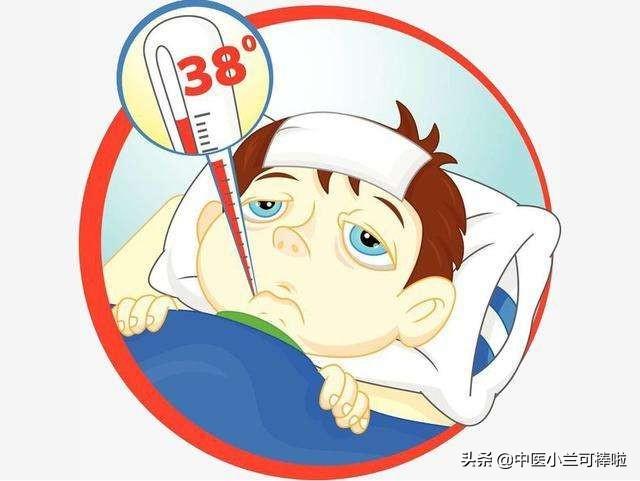
[1] Normal people in fever is not caused by the rise in blood sugar, but if in the treatment of glucose injection, if the glucose drip is too much, then the blood sugar will also rise, but this situation is only temporary.
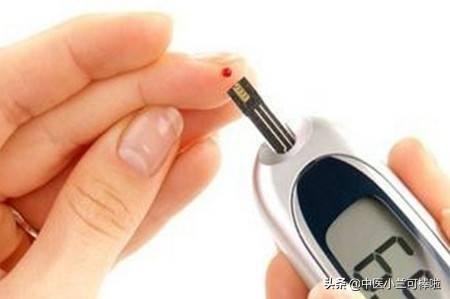
[2] For diabetic patients, the body's immune function is generally low, the number of immune lymphocytes is reduced, phagocytosis is weakened, so diabetic patients have a relatively high incidence of fever and infection.

[3] Diabetic patients have lower immunity, so the sputum secreted after a cold will have more sugar, and it is easy to become a breeding ground for bacteria and viruses, coupled with a weakened immune system, the body will secrete hormones to resist insulin after being infected by viruses, and the blood glucose will rise.
In normal people, fever does not cause blood glucose to rise, and common cold and flu medicines do not contain ingredients that cause blood glucose to rise. However, if the liquid used for fever is glucose, and if too much glucose is administered, the blood sugar will naturally rise. This high blood sugar symptom is only temporary and will not cause any harm.
For diabetic patients with frequent high fevers, it should be considered that the blood glucose itself is high at the time of the fever. Diabetic patients, especially those with unstable glycemic control, tend to have low body immune function, which is manifested by a decrease in the number of immune lymphocytes and a weakening of phagocytosis, leading to an increased incidence of infections in diabetic patients. Very common in the respiratory system are viral infections, such as colds, bacterial infections, bronchitis, pneumonia and so on.
Diabetics are susceptible to infections of the oral, respiratory, gastrointestinal and urinary tracts due to the body's lowered resistance, and the infections tend to be more severe and prolonged. Fever after infection is the response of the body's immune system to fight off germs, which is conducive to overcoming the disease. However, the body is in a state of stress during fever, with rapid heartbeat and elevated blood sugar.
This question and answer are from the site users, does not represent the position of the site, such as infringement, please contact the administrator to delete.